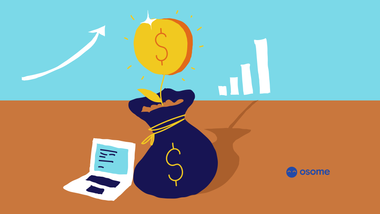Q&A on Paying Taxes as International Seller on Amazon.sg
Planning to sell your products to Singapore on Amazon.sg as an international seller? Many sellers are often confused about the tax liability on their sales online. Every country has its own set of tax regulations and tax rules are always changing.

Planning to sell your products to Singapore on Amazon.sg as an international seller?
However, many sellers are often confused about the tax liability on their sales online. Why? For one, every country has its own set of tax regulations, selling internationally will mean that you are exposed to the taxes in these countries. Two, tax rules are always changing.
This means keeping up with your compliance requirements can be challenging if you do not follow or understand the rules properly. Especially if you are a first-time international seller, you would want to understand your tax exposure and familiarise yourself with the regulations to ensure that you are not in for a nasty surprise.
In this article, we will address some of the common issues faced by international sellers when they sell on Amazon.sg. By the way, if you are looking for accountants familiar with e-commerce businesses then look no further. We convert statements from e-commerce platforms into books, give you accounting services, tax filings, and profitability reports. Otherwise, read on.
Income Tax Payable as Foreign Seller
Q: Do I Need To Pay Tax on the Income I Earned From Selling on Amazon.sg?
A: It depends if you are purely selling to Singapore from overseas or you have an established place of business such as a branch in Singapore. If the main business activity is based outside of Singapore, the income that you earned from your sale of goods to Singapore customers will not be taxable.
However, if you have a branch set up in Singapore, the income that you earned from your sale of goods here will be taxable.
Eva Coffee Roasters is a coffee brand based in Sydney, Australia. Recently, they opened a new branch in Singapore. Besides selling on Amazon Australia, they also sell their packed coffee grounds on Amazon Singapore. Within the first year, they achieved an estimated S$200,000 in profit on their sales on Amazon Singapore. As the business activity is conducted through a branch office in Singapore, the income earned that is attributable to the Singapore office will be taxed based on Singapore’s corporate tax rate.
Goods and Services Tax (GST)
Q: Are there other tax obligations Sellers should be aware of when selling on Amazon.sg?
A: Apart from Income Tax, companies selling in Singapore may be subject to the GST (Goods and Services Tax) regulations as well. These regulations apply on both local and overseas entities that are making taxable supplies to Singapore.
Q: What is GST and how does the GST regulations apply to foreign sellers?
A: GST stands for Goods and Services Tax. This is a consumption tax that is levied on the supply of goods and services in Singapore as well as the import of goods into Singapore. In some countries, this tax is known as Value-Added Tax (VAT).
GST is 9% and is applied onto the selling price of goods and services provided by GST registered entities. It is charged to the consumers of goods and services and hence the name, Goods and Services Tax.
If you are selling goods or providing services to Singapore, GST regulations will apply to you even if you are not a Singapore company. Under the GST regulations, companies providing goods and services to Singapore customers are required to register for GST when its taxable turnover (for supplies made to Singapore) exceeds S$1 million at the end of a calendar year. It is also required to register for GST if it anticipates that the total value of its supplies will exceed S$1 million in the next 12 months. The same rules for GST apply regardless of whether the company is a local or foreign entity.
Q: During the Implementation of Prices for My Products, Am I Required to Charge GST to Customers in Singapore?
A: For goods provided to Singapore customers, a Singapore company is only allowed to charge GST if they are GST registered.
If your supplies (sales) to Singapore local customers exceeds S$1 million at the end of the calendar year or at the end of any quarter, you are required to register for GST. However, as a foreign entity, you will need to appoint a local agent in Singapore who will act on your behalf for all your GST matters. The agent will be responsible for your GST obligations.
Q: Can I charge GST if I am not GST Registered?
A: No. Only GST registered companies are allowed to charge GST. You can opt to register for GST voluntarily.
Q: Will Amazon provide a tax invoice to my customers on my behalf?
A: Unfortunately, Amazon does not provide a tax invoice. Instead, it is the seller’s responsibility to ensure it is in compliance with the Singapore GST law. This includes issuing tax invoices for sales made to customers, collecting GST and payment of GST to Inland Revenue Authority of Singapore (IRAS).
If you are still wondering about issuing tax invoices, do not worry! Our experienced accountants can help you if you have any questions on GST compliance.
Possibility of Double Taxation
Q: How do I avoid paying tax twice if I’m paying tax in my own country?
A: One of the benefits of being an international seller outside Singapore is that your income earned from selling goods to Singapore customers on Amazon.sg may not be taxable in Singapore. However, complications may arise if you have a branch or other forms of presence in Singapore leading to the conclusion that you are trading in Singapore. The same income earned may then potentially be liable to tax in both countries – the country of source where you sell your goods to and the country of residence where the income is being received.
To avoid having to pay excessive taxes on your income under such circumstances, you should speak to your tax consultants to ensure that you are not exposed to tax in both countries, or to better structure your taxes. You may speak to our team to find out more.
Sarah is a U.S. expatriate who lives in Singapore and has set up a company in Singapore via a nominee directorship. She sells baby toys on Amazon.sg to customers in Singapore. The income from her sales on Amazon.sg is taxable in Singapore.
She is also a taxpayer in the U.S, which is her home country. As Singapore and the U.S do not have a double taxation agreement, her income will be taxed in both countries. But there is a foreign tax credit, which can be used to relieve this double taxation. Likewise, this also helps expatriates like Sarah to minimise their tax liability.
Conclusion
Tip
Figuring out taxes as an international seller selling on Amazon.sg might be confusing. You can do it all on your own, but you don’t have to. Focus on your business growth while our experienced accountants lift the burden of trying to get it right.







